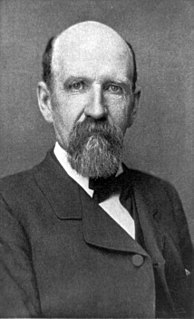A Quote by Walter Kirn
I review books as a day job, and through the years I've come to view the contemporary memoir as, almost always, a saga of victimization, sometimes by others, sometimes by the self, and sometimes by illness or misfortune, leading, like clockwork, to healing and redemption.
Related Quotes
People get sick and sometimes they get better and sometimes they don't. And it doesn't matter if the sickness is cancer or if it's depression. Sometimes the drugs work and sometimes they don't. Sometimes the drugs work for a while and then they stop. Sometimes the alternative stuff works and sometimes it doesn't. And sometimes you wonder if no outside interference makes any difference at all; if an illness is like a storm, if it simply has to run its course and, at the end of it, depending on how robust you are, you will be alive. Or you will be dead.
I think, as we go through life, we can sometimes, while still staying essentially true to ourselves, pick up mannerisms or modes of expression that are like curlicues. And there was a lot of that that I recognized sometimes. And I remembered, sometimes dimly, why those phrases felt so tasty to me, why that particular curl felt so good to me. But from my point of view now, it was almost inaccurate. It changed the meaning of what I was saying in a way that it seemed like a distortion.
In almost every musical ever written, there's a place that's usually about the third song of the evening - sometimes it's the second, sometimes it's the fourth, but it's quite early - and the leading lady usually sits down on something; sometimes it's a tree stump in Brigadoon, sometimes it's under the pillars of Covent Garden in My Fair Lady, or it's a trash can in Little Shop of Horrors... but the leading lady sits down on something and sings about what she wants in life. And the audience falls in love with her and then roots for her to get it for the rest of the night.
I do like to work. Some jobs are better than others. That's the thing: You really don't know. I've enjoyed making movies for lots of different reasons. Sometimes, it was the other people. Sometimes, it was the fact that I was really good in it. Sometimes, it was the location. Sometimes, it was the paycheck.
The strange thing about the apocalypse is that it's uneven. For some people, it goes one way and for others another way, so that there's always this shifting relation to the narrative of the disaster. Sometimes apocalypses are just structural fictions, and sometimes they're real. Sometimes a narrative requires an end - the fact that the beginning was always leading somewhere becomes clear at the end. There's an idea that we're always in the middle, but we posit this apocalyptic end in order to also be able to project into the past or the beginning. I think that's true and false.







































